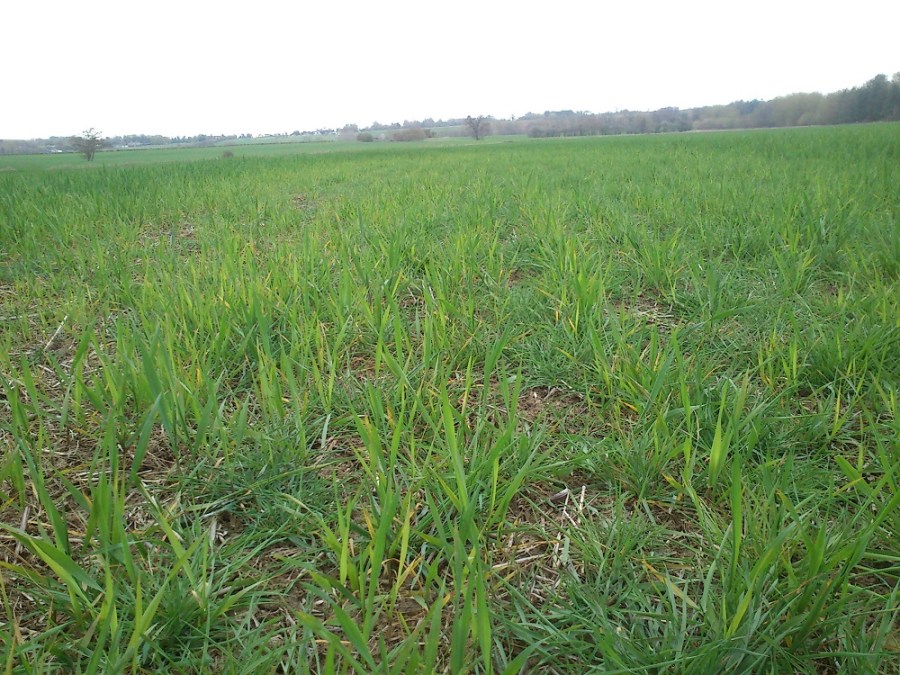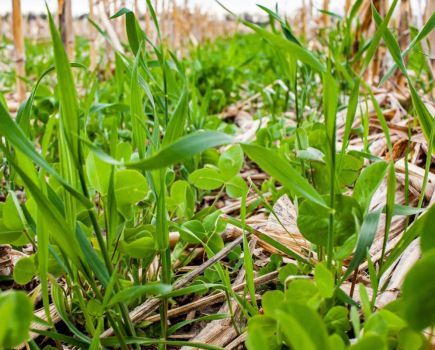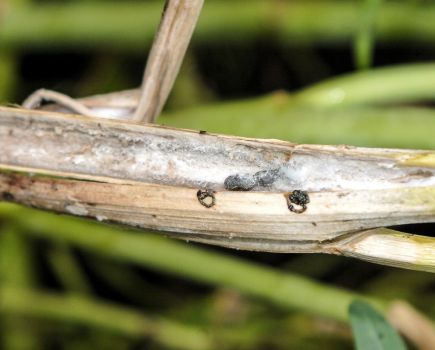With the option of Hamlet or Atlantis WG to control blackgrass this spring, which should growers plump for? CPM asks Bayer the question and gets an update from BASF on field performance of their new PGR last season.
There are lessons to be learned from last year.
By Rob Jones
Last season, blackgrass surprised with its capacity to recover and tiller after a reasonably successful residual programme.
“During our trials of Hamlet (mesosulfuron+ iodosulfuron+ diflufenican), we saw added benefits and an increased level of blackgrass control during the autumn and winter months, when it’s intended to be used,” explains Bayer Development Manager, Dr Gordon Anderson-Taylor.
“As a rule, it provided 10% more control than Atlantis (mesosulfuron+ iodosulfuron), even when trialled on quite stubborn EMR blackgrass. The best control from Hamlet is from applications before the weed tillers, so it’s best to get on as early as possible.”
Where this hasn’t been possible over the last few months, then be ready to use Atlantis WG once spring gets underway. The formulation of Hamlet – which includes diflufenican – means there is less benefit applying in the spring once active growth starts, he advises.
Hamlet’s more powerful formulation means it needs to be applied before the crop ‘wakes up’ in spring to avoid risking crop effects. The exact date will vary year-to-year but Bayer advises growers a good rule of thumb is to avoid use of Hamlet at the full rate of 1.5 l/ha after the end of Feb. Once crops begin spring growth, Atlantis WG offers the best balance between control of blackgrass while managing the risk of phytotoxicity.
“There are lessons to be learned from last year when the pre-ems did their job well,” continues Gordon Anderson-Taylor. “Good early blackgrass control resulted in some neglecting their post–ems and the consequences were clear to see in June when blackgrass came back with a vengeance.”
Both Hamlet and Atlantis provide good additional control of blackgrass and ryegrass. What’s more, they have a decent range of activity against other grasses and several broadleaf weeds, so a timely application in the next month will be worthwhile on many farms.
“Both Hamlet and Atlantis need to land on a dry leaf and stay there to be taken in by the plant. Using biopower as an adjuvant increases the staying power of the herbicide and helps enhance uptake by the leaves of the target. Using a fine-medium spray with a flat fan nozzle works best, while spraying at a speed of no more than 12km/h to avoid drift.”
Relive the ‘wow’ effect – Innovation Insight on page xx explores the discovery and the stewardship of Atlantis.
Pig slurry tests new PGR
Last season saw the introduction of a new PGR product from BASF, Medax Max (prohexadione+ trinexapac-ethyl). Dudley Kitching, BASF agronomy manager for Scotland explains that the prohexadione is active as soon as the PGR is applied but the trinexapac acts more slowly, increasing the duration of growth regulation.
“Flexibility in timing and activity at low temperatures allows the rooting system and viable tillers to be enhanced by early application. Use during stem extension shortens and strengthens the straw reducing lodging and easing harvest,” he says.
“The production of ethylene, the stress hormone, is also inhibited and so later applications tend not to result in the secondary tillering often seen with alternative products.”
Scottish grower, Dennis Bridgeford, produces cereals for use in his 500-sow pig enterprise, where he finishes 12,000 pigs annually. Keeping crops from going flat is crucial to satisfy the pig unit’s requirements for feed and bedding, he explains.
“We inject the slurry into the fields at a rate of 33m3/ha. With so much pig slurry applied to the crops we use a quality plant growth regulator to give the robust lodging control we require.
“Last year we used Medax Max for the first time and even though July was very wet, we didn’t have any lodging at all. I also noticed that the crops ripened very evenly which is an important consideration for us given this can often be a problem due to the nature of the muck and slurry applications,” he says.




